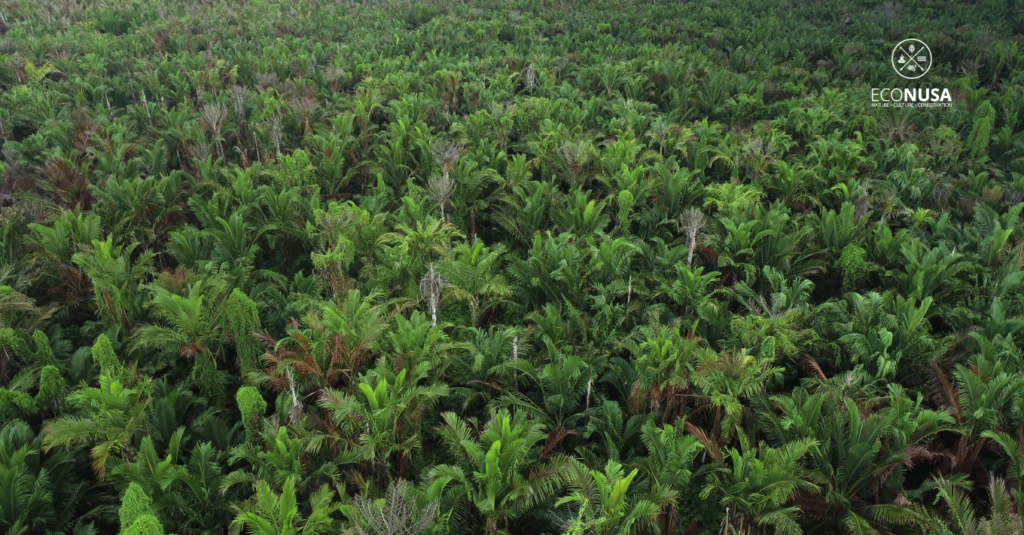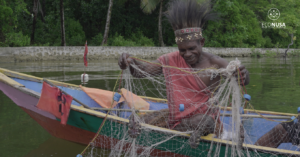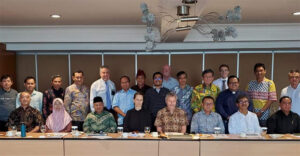
As to Moi Kelim Tribe, forest is akin to a mother who nurtures livelihood. The tribe that dwells most regions in Sorong Regency, West Papua, here conserves and utilizes forests from generation to generation. From forests, they could earn food for living such as sago, fruit, and animals for their protein.
Ita Mili is one of the Moi Kelim Tribe peoples. The Mili clan resides in Walal Village, Salawati District, Sorong Regency. In addition to her daily consumption, Ita also makes use of sago as the only source of income to her family. “My family and I can build a house and afford many things from sago. This is all we have,” said Ita while squashing sago in her village as the sago production spot on 20 January 2022.
Read also: Igya Ser Hanjop, Arfak Tribe’s Ecological Management
The sago production house of the Mili clan is sago forest. It locates nearby her house. With her husband, Andris, she should walk around 600 meters along the small wooden path standing 15 centimeters in height above the swamp. The wooden path was independently constructed by Ita and Andris.
It normally takes three days to process a sago tree to produce around 15 to 17 sacks of sago. One sack weighs around 15 kilograms. A family will consume only 1-2 sacks of sago every month. They usually sell the remaining wet sago to the downtown market in Sorong Regency or Sorong Mayoralty.
Usually in two weeks, Ita can produce 30-40 sacks of sago for sale which costs Rp125,000 per sack. “It is only my husband and I who work on it,” she said.
Read also: EcoNusa CEO: Returning Rights to Indigenous People Should Come after License Revocation
In addition to Mili clan, sago also becomes the major sustenance for the clans of Malakabu, Fes, and Libra that inhabit Salawati Daratan in Sorong Regency. However, the only source of community livelihood is threatened by the land use change. Their forests are prone to land clearance for palm oil plantation owned by PT Inti Kebun Lestari. The company has 28,256 hectares of concession areas. As from the size, around 1,700 hectares are sago forests possessed by the four major clans in Salawati Daratan.
Fortunately, Sorong Regent Johny Kamuru revoked the location and business permits of the company in April 2021. The Regent here committed to return the natural resources management to the indigenous community. However, PT Inti Kebun filed a lawsuit against the Regent to Jayapura Administrative Court in Papua. The court turned down the lawsuit on 16 January 2022. In response, PT Inti Kebun appealed the case to the High Administrative Court in Makassar.
Read also: Locals Deceived by Questionable Palm Oil License
Following the Regent’s revocation of corporate concessions, the communities of the four clans called for legal assistance from EcoNusa to map their customary areas. The participatory mapping will serve as the protection of customary land from investor in the future. “We are from Malakabu, Mili, Fes, and Libra clans want to defend our customary land so that we can manage our sago,” said Ruben Malakabu, a local youngster from the major clan in Walal Salawati Village.
Editor: Nur Alfiyah







